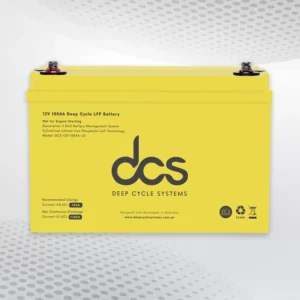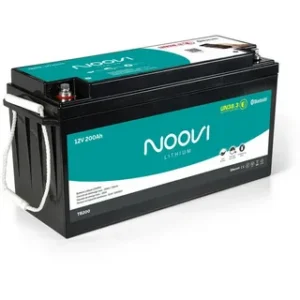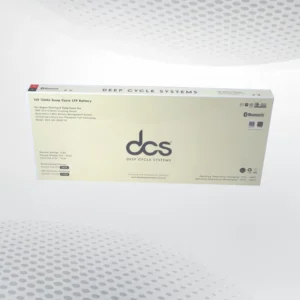In an era where renewable energy is becoming increasingly vital, the 12-VDC solar battery charger stands out as an efficient, eco-friendly solution for powering various devices. With the ability to harness the sun’s energy, these chargers provide a sustainable way to keep your batteries charged, whether camping in the wilderness or maintaining an off-grid lifestyle. In this comprehensive guide, we’ll explore the ins and outs of the 12VDC solar battery charger, highlighting its features, benefits, and applications.
Understanding the 12-VDC Solar Battery Charger
A 12-VDC solar battery charger is designed to convert solar energy into direct current (DC) electricity to charge 12-volt batteries. It typically includes solar panels, a charge controller, and wiring. The solar panels capture sunlight and convert it into electrical energy. The charge controller regulates this energy, ensuring safe and efficient battery charging.
The system’s functionality hinges on the interplay between these components, which work together to provide a steady and reliable power source. By understanding the workings of a 12-VDC solar battery charger, users can better appreciate its capacity to harness renewable energy and maintain battery health.
Key Features of a 12 Volt Solar Battery Charger
A 12 volt solar battery charger has several key features that enhance its functionality and efficiency in harnessing solar energy. One of the most critical features is solar panel capacity. Typically measured in watts, higher-capacity panels can capture more sunlight, leading to faster charging times, which is essential for users needing immediate power.
Built-in charge controllers are another vital component, regulating the voltage and current flowing into the battery to prevent overcharging. This feature ensures the battery’s longevity by safeguarding it against damage caused by excessive charging. Many solar battery chargers incorporate Maximum Power Point Tracking (MPPT) technology. This advanced feature optimizes energy capture from solar panels, especially in varying light conditions, significantly improving charging efficiency compared to standard controllers.
Portability is also a significant consideration. Many 12-volt solar chargers are designed to be lightweight and compact, making them easy to transport for outdoor activities, camping, or emergency preparedness. Some models come with multiple output options, allowing users to charge various battery types or devices simultaneously. Weatherproof designs enhance durability, enabling the charger to withstand outdoor conditions and ensure reliable performance over time.
Understanding Battery Compatibility: What You Need To Know
Understanding battery compatibility is crucial for ensuring your energy systems’ optimal performance and longevity. It’s essential to match the battery’s voltage with the device or system it will power. For instance, using a 12-volt battery in a system designed for 12 volts is critical to avoid damaging components or compromising efficiency. Consider the battery chemistry.
Common types include lead-acid, AGM (Absorbent Glass Mat), and lithium-ion batteries. Each type has different charging and discharging characteristics, so it is vital to use chargers and inverters specifically designed for the battery chemistry. This prevents overcharging or deep discharges, which can significantly shorten battery life.
Another critical factor is the capacity rating, typically measured in amp-hours (Ah). The capacity should align with the application’s power needs. Overloading a battery beyond its rated capacity can lead to reduced performance and potential failure. Remember that some systems may require batteries with specific features, such as built-in battery management systems (BMS) for lithium-ion batteries.
The Advantages of Using A 12V Solar Battery Charger System
A 12V solar battery charger system offers numerous advantages, making it an attractive option for various applications, from recreational vehicles to off-grid living. One of the primary benefits is energy independence. By harnessing solar energy, users can charge their batteries without relying on the electrical grid, which is especially advantageous in remote areas where conventional power sources are unavailable. Another significant advantage is cost savings.
While the initial investment in solar panels and chargers may be higher, the long-term savings on electricity bills and reduced reliance on fossil fuels make solar systems economically beneficial. Furthermore, solar energy is renewable and abundant, ensuring a sustainable power source. Efficiency is another critical benefit of 12-V solar battery charger systems. These systems can operate in diverse weather conditions, providing reliable energy throughout the year.
Advanced solar chargers often include features like Maximum Power Point Tracking (MPPT), which optimizes energy capture, further enhancing efficiency. Solar chargers are low maintenance. Unlike traditional generators, which require regular fuel and oil changes, solar systems have few moving parts and need minimal upkeep. Lastly, solar energy contributes to environmental sustainability by reducing carbon footprints and promoting cleaner energy sources.
Applications and Uses for 12-V Solar Chargers
12-V solar chargers are versatile devices that provide eco-friendly energy solutions for various applications. Here are common uses:
Recreational Vehicles (RVs)
12-V solar chargers are ideal for RV owners who want to power appliances and charge batteries on the road. These chargers allow users to harness solar energy, ensuring a reliable power source without draining the vehicle’s main battery.
Boats and Marine Equipment
For boaters, 12-V solar chargers offer a convenient way to maintain battery levels for navigation systems, lights, and other electronic devices. They are handy for extended trips and provide a continuous energy source without noisy generators.
Camping and Outdoor Activities
Campers often rely on 12-V solar chargers to power portable devices, lights, and other camping gear. Campers can enjoy modern conveniences by using solar energy while minimizing their environmental impact.
Remote Off-Grid Locations
In areas without access to traditional power sources, 12-V solar chargers provide a reliable solution for charging batteries and powering small appliances. This application is particularly beneficial for remote cabins, workshops, or homes in rural areas.
Emergency Backup Power
12-V solar chargers can be a backup power source during emergencies or power outages. They can keep essential devices, such as medical or communication devices, running when conventional power sources are unavailable.
Selecting the Best 12 Volt Solar Battery Charger
Selecting the best 12 volt solar battery charger involves several key considerations to ensure optimal performance and efficiency. Assess the power needs of the battery you intend to charge. The charger’s wattage output should match or exceed the battery’s capacity to ensure efficient charging. Typically, a charger with a higher wattage will charge the battery faster, especially during periods of low sunlight.
Consider the type of battery you are using, as different batteries (like lead-acid, AGM, or lithium-ion) may require specific charging profiles. Choosing a charger compatible with your battery type is essential to prevent damage and ensure proper charging. Look for features such as built-in charge controllers, which help regulate voltage and to avoid overcharging.
Monitoring capabilities can also be beneficial, allowing users to track charging status and battery health in real time. Evaluate the quality and durability of the solar panels, especially if you plan to use the charger in outdoor or rugged conditions. By considering these factors, users can select the best 12-volt solar battery charger to meet their energy needs effectively.
Safety Considerations When Using Solar Chargers
Several safety considerations are crucial when using solar chargers to ensure effective and safe operation. It’s essential to select chargers designed for the specific battery type. Using the wrong charger can lead to overcharging, which may cause battery overheating, leakage, or even explosions. Proper placement of solar panels is another critical aspect. They should be installed in a location that maximizes sunlight exposure while avoiding shaded areas.
This enhances charging efficiency and reduces the risk of overheating from prolonged exposure to direct sunlight, particularly during extreme temperatures. It’s vital to regularly inspect cables and connectors for signs of wear, corrosion, or damage. Faulty connections can lead to electrical shorts or fires, so maintaining these components is essential for safety. Users should also be aware of weather conditions.
Charging in heavy rain or storms can pose electrical hazards, so it’s advisable to disconnect the charger during adverse weather. Proper ventilation is essential when using solar chargers indoors. If batteries release gases during charging, good ventilation helps prevent the accumulation of potentially harmful fumes. By following these safety considerations, users can enjoy the benefits of solar charging while minimizing risks.
Installation Guide for a Solar Battery Charger for 12V Battery
Installing a solar battery charger for 12V battery is straightforward if you follow these steps. Start by selecting a location with maximum sunlight exposure for the solar panels. Securely mount the panels using brackets or stands, ensuring they are angled correctly to capture the most sunlight.
Connect the solar panels to the charge controller. The charge controller prevents overcharging and regulates the solar panels’ voltage. Typically, the controller has terminals labelled for solar panel input, battery output, and load. Use appropriate wiring to make these connections, ensuring all connections are tight and secure to avoid any power loss or safety hazards. Once the solar panels are connected to the charge controller, link the charge controller to the 12-volt battery.
Pay attention to the polarity; connect the controller’s positive terminal to the battery’s positive terminal and the controller’s negative terminal to the battery’s negative terminal. After all connections are made, turn on the system to begin charging. Monitor the charge controller to ensure it functions correctly, and the battery is charging efficiently. Some charge controllers feature indicators or display screens that show charging status and battery levels.
Conclusion
In conclusion, a thorough understanding of solar battery chargers is vital for maximizing the benefits of renewable energy systems. By harnessing the sun’s power, users can efficiently charge 12-VDC batteries, ensuring reliable energy storage for various applications. These chargers offer sustainability and convenience for recreational vehicles, off-grid living, or emergency backup. Investing in a quality solar battery charger enhances energy independence and contributes to a greener, more sustainable future.
FAQs
How does a 12-VDC solar battery charger work?
A 12-VDC solar battery charger utilizes solar panels to capture sunlight, which is then converted into electrical energy. This energy flows through a charge controller, which regulates the charging process to prevent overcharging and ensure the battery is charged efficiently and safely.
What are the benefits of using a 12VDC solar battery charger?
The benefits of using a 12VDC solar battery charger include cost savings on electricity bills, reduced dependence on fossil fuels, and the ability to charge batteries in remote locations without access to the grid. Additionally, solar charging is environmentally friendly, contributing to a reduction in carbon emissions.
Can a 12-VDC solar battery charger be used with different battery types?
Yes, a 12-VDC solar battery charger can be used with various battery types, including lead-acid, AGM, and lithium-ion batteries. However, users should ensure compatibility with their specific battery chemistry and follow the manufacturer’s recommendations for optimal performance.
How do you maintain a 12-VDC solar battery charger?
Maintaining a 12-VDC solar battery charger involves:
- Regularly inspecting the solar panels for dirt and debris.
- Ensuring connections are secure.
- Checking the charge controller for proper functionality.
Monitoring battery levels to prevent over-discharge and ensure longevity is also essential.
What should one consider when purchasing a 12-VDC solar battery charger?
When purchasing a 12-VDC solar battery charger, factors to consider include the charger’s wattage output, compatibility with battery types, the efficiency of the solar panels, and additional features like built-in charge controllers or monitoring capabilities. Understanding specific power needs will help you select the correct charger for effective performance.




